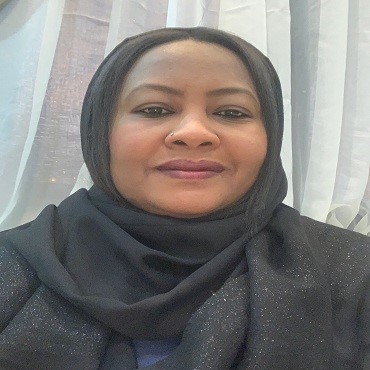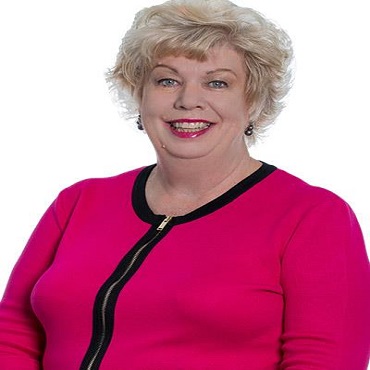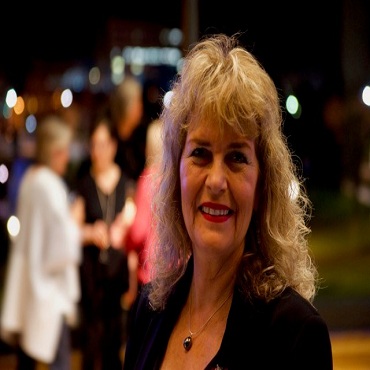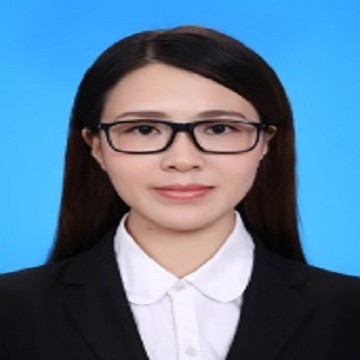Scientific Program
Keynote Session:
Title: Designing Simulation Interventions to Reduce Stress Among New Graduate Nurses in the Intensive Care Units in Saudi Arabia: A Mixed Methods Design
Biography:
Ayidah Sanad Alqarni, PhD in Medicine Nursing (2018) speciality (Critical care for adults) at University of Adelaide (UOA) in Australia, Master of Nursing Science 2011 at UOA. She has Bachelor of Nursing Conversion, Murdoch University, WA (2010), Diploma in teaching clinical instructor program of ministry of health Saudi Arabia (2003-2004). Diploma (nursing) ABHA College Female of Nursing Associated Degree), Saudi Arabia Awarded the intermediate university degree in Health Science in the field of general nursing (1998- 2001; 1992-1995). She workes as a Registered nurse working in the critical care units (1994-2008) and Clinical educator (full-time position) at King Khalid University (Formerly known as Female ABHA college of Nursing) (Saudi Arabia).
Abstract:
Title: Patient Safety Section - Speak Up for Patient Safety
Biography:
Erin Lloyd currently works as the Group Head for Nursing, Quality and Risk for Ramsay Sime Darby Healthcare (RSDH). She is a Registered Nurse, Midwife, has a Bachelor of Nursing and holds a Masters of Health Management. She has worked for Ramsay Health Care (RHC) since 1996 in various roles including Nurse Unit Manager, Hospital Quality Manager and Medical Services Manager. In 2007, she commenced working for RHC in Indonesia and in July 2013 with the joint venture between Ramsay and Sime Darby, this changed to RSDH.Erin’s keen interest in patient safety/accreditation materialized in 2011 when Bintaro Hospital (Indonesia), became the fourth hospital in Indonesia, to obtain the US Joint Commission International Accreditation. The subsequent accreditation & re accreditation, of all the three Indonesian Hospitals and two Malaysian hospitals have been extremely rewarding. Secondly, the development of strong quality teams has also been another milestone in her work and lastly the upskilling of nursing staff from diploma to degree nurses and the professionalization of nursing have been very satisfying
Abstract:
In an effort to focus on a Culture of Safety and Quality, Ramsay Sime Darby Healthcare (RSDHC) commenced a “Speak Up For Patient Safety” program in January 2019. SUFPS is an innovative and evidence-based programme, based on the Vanderbilt University (USA) program delivered with the assistance of the Cognitive Institute. The program addresses in a positive way any behaviour which undermines a culture of safety through peer-to-peer conversations and equipping staff with assertiveness training. To achieve a successful outcome there was a major focus on informing, educating and engaging key stakeholder groups.
Title: Nursing in the International Context of Developing Countries
Biography:
Jill has had over 25 years’ in Australia and more recently in Asia, as a senior health executive of which 20 years were reporting to hospital and not for profit boards. Currently she was working as Chief Nursing Officer, Chief Operating Officer and Health Planner for VAMED Healthcare Services Asia (Thailand) and working in Vientiane Laos, she was previously CNO at Imperial Hospital, Bangladesh and CEO or CEO/CNO at multiple large and small hospitals and health services in Australia. Jill has a Bachelor of Health Administration, MBA, Ass Dip Accounting, Diploma Corporate Director, Fellowship with Australian College of Health Service Managers and qualifications in general, midwifery and mental health nursing. All skills are now being used in building, commissioning and managing hospitals in developing countries. Jill has held senior positions in the Australasian College of Health Service Managers (ACHSM) and Australian Healthcare & Hospitals Association (AHHA) which she remains a member.
Abstract:
Nursing is a profession with many challenges, and we have always known this. It is also a profession of huge alternatives, opportunities for learning and growth. Even though I have been in this profession for over 40 years, I don’t think anything has challenged my abilities, my senses, my patience yet given me a great sense of achievement like being a nursing administrator in developing countries. After having spent the previous 20 years reporting to Boards as a Chief Executive Officer, yet with clinical nursing responsibility in many of those roles, I have now returned to my nursing roots as a Chief Nursing Officer and Chief Operating Officer in several developing countries. Spending 12 months in Bangladesh, 6 months in Thailand and now resident in Laos, my role is multi-faceted; one of building, commissioning and managing hospitals and developing the clinical quality perspective with a vision to lead the hospital to international accreditation. However, when you get down to it, the predominant need is always the clinical need. The need for a hospital to reach accreditation standards, the need to fight for single use device policies and the need to train nurses in basic yet critical skills of hand hygiene, infection control, prevention of antibiotic resistance. This is difficult, yet an amazing experience when the nurses you have influenced become champions as infection control trainers and educators of their patients, their community and their colleagues. Combining my experience as a clinical nurse and a hospital administrator enables me to give back to a community. Having a role in commissioning hospitals and developing clinical and governance systems for communities that need basic health care, health literacy and essential public health measures that for most of those in modern nursing, take for granted, is both a privilege and an adventure.
Title: Tracking The Trajectory of Exercise Adherence Over Time and Examining the Effect of Theory- Lead Intervention for Knee Osteoarthritis in Older Adults :A Cluster Randomized Trial
Biography:
Limin Wang is interested in the geriatric nursing and rehabilitation nursing and has participant several meaningful researches about nee osteoarthritis in the elderly. The present study is a main about how to improve the life quality of elderly with KOA and help them cope with KOA in the long time. There is about 23.35 million people aged 60 or above years old with symptom KOA in China and the prevalence is about 11.1%-18.5%. They suffer from severe pain and limited function in remaining life. Our team are to improve the quality life of the patients by the intervention and we also would like to collaborate with other teams or scholarships from the world.
Abstract:
Knee osteoarthritis (KOA) is a common joint disease in people over 60 years old. Exercise therapy is one of the most effective non-pharmacological treatments for knee osteoarthritis, but low exercise adherence needs to be improved. The purpose of this study is to track the trajectory of exercise adherence over time and to examine the effect of the transtheoretical model-lead home exercise intervention (TTM-HEI) program on exercise adherence, symptoms and knee function in older adults with KOA. The transtheoretical model (TTM) is a widely-used multistage of action and behaviors. The study combined the model with physical activity and conducted a 24-week transtheoretical model-lead home exercise intervention program for older adults with KOA with a two-arm, cluster randomized trial design in 2018. At weeks 4, 12, 24, 36, and 48 after the program started, exercise adherence measured by an 11-point numerical self-rating scale was accessed; KOA symptoms (pain intensity and joint stiffness) and knee function (lower limb muscle strength and balance) were measured at baseline, week 24, and week 48. Findings: Tracking the trajectory of exercise adherence over time in two groups using latent growth model (LGM), we found TTM-HEI could effectively maintain participants’ exercise adherence with 5.563 (SD=0.997) comparing with 3.159 (SD=1.313) in control group at week 48 and keep members relatively consistent and better growth rate of exercise adherence with increased 2.175 units compared with control group (unstandardized coefficient of slope on group B2 =2.175) and lower 1.62 units of variances of slope. Besides TTM-HEI could also relief KOA symptoms and improve knee function much better than control group. Exercise adherence shows big variance between individuals over time under no supervision and TTM-HEI program could maintain individuals’ good exercise habit by setting goals and tailoring the schedule





